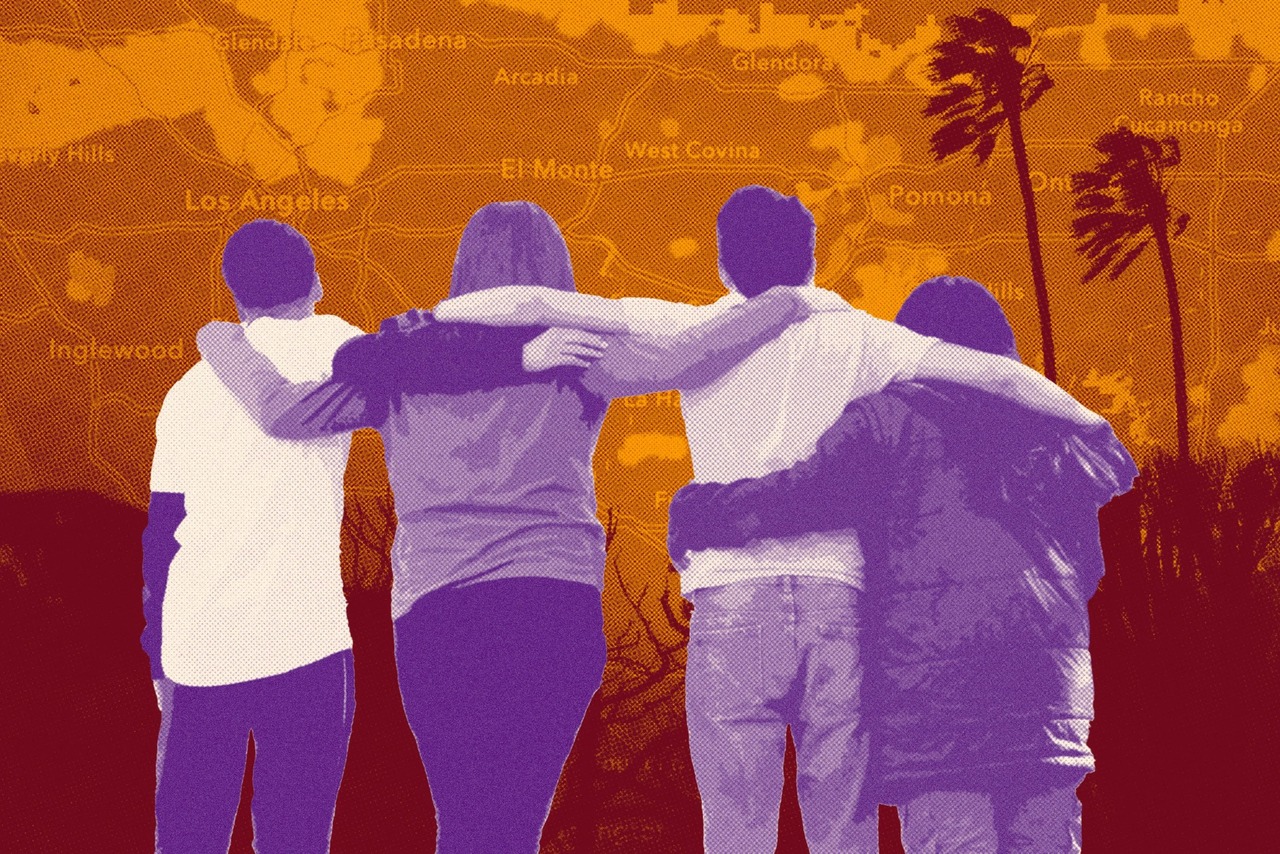Copyright Staten Island Advance

By Rodrigo Cervantes | Edited by Belinda Chen For many first-generation Latinos like myself, the idea of a wildfire threatening your house once felt like something straight out of a movie. That was until last January. Unlike most American towns and cities, suburban neighborhoods in many of our hometowns in Latin America are dense, with most of our buildings made of fire-resistant materials like brick or cement. Help during a catastrophe often comes from camaraderie, with quick responses provided mainly by neighbors and family rather than authorities. Don’t get me wrong: wildfires do exist in Latin America and can be devastating. But in Southern California, they are a recurring nightmare that feels surreal, frightening, and unfamiliar for many of us. Unlike Latin America, the response here in California relies almost entirely on the government. Part of the problem we face in California is a lack of information, which affects most of us, whether you are a recent immigrant or part of a multigenerational Latino family. This, along with cultural, linguistic, ethnic and socioeconomic barriers, keeps the community disproportionately vulnerable during these catastrophes. Latinos in the Los Angeles metro area are more likely to be exposed to fire risk while systematically underserved when it comes to prevention, response and recovery. According to a study from the UCLA Latino Policy and Politics Institute, at least 74,000 Latinos were affected by wildfires earlier this year. That’s about one-fourth of the total population impacted. The same study suggests that, regardless of how significant that number is, emergency management systems have historically failed to address the specific needs of Latino communities, discouraging them from seeking assistance. In addition, “language barriers, fears of immigration enforcement, as well as concerns about being labeled a public charge, still limit the Latino community’s search for support,” the study says. The situation has worsened in recent years, given the political tensions and social unrest stemming from the Trump administration. Current immigration policies and federal tactics have increased fear and mistrust of authorities among Latinos across the region. The continuous and often unpredictable raids conducted by ICE (widely reported as being influenced by xenophobia or racism) have left many feeling more alienated than ever. The Altadena Resident Impact Survey and Evaluation (ARISE) compiled experiences and opinions of residents after the Eaton Fire. Nearly 80% of Latino residents reported feeling ignored, compared with white residents, by more than 10 percentage points. How will Latinos build trust in the system to face disastrous wildfires in the future, when many already feel abandoned or persecuted by the government? Fear and lack of information are not the only challenges. Many Latino households and businesses affected by fires are also severely impacted by an already struggling economy, worsened by inflation. Poor access to or knowledge of financial tools, such as insurance, emergency funds, or savings accounts, heavily affects how the community recovers from catastrophe. The ARISE survey shows that Latino small businesses and households in that area often face significant gaps in emergency preparedness and have limited access to safety-net programs during times of crisis. But the reality is not different across the entire state. According to a 2023 survey to small businesses conducted by UCLA’s Latino Policy and Politics Institute, more than one-fourth of small businesses in California reported having no flood, earthquake or fire insurance, despite such coverage offering crucial financial protection. A recent story published by palabra documented cases of several Latino businesses in Altadena facing devastation after fires destroyed their shops, homes and livelihoods. While some found support through community solidarity, others had to take out loans, adding an extra burden to an already precarious situation. Misinformation and overconfidence also play a role in the lack of insurance. One interviewee in the palabra story explained that he never purchased insurance because he never thought something like that could happen. Altadena is just one example of what Latinos in other regions may be facing. So, what can we do? We may not build concrete homes everywhere like in Latin America, but we can push for public and private investment in fireproofing vulnerable homes. Funds could be directed toward retrofitting older buildings, clearing brush and installing hydrants. This is not charity, but smart policy to prevent catastrophes. Fire codes should be reinforced in high-risk, low-income areas, particularly because many negligent landlords exploit tenants’ language barriers or immigration status to keep their properties uninspected or unsafe. At the same time, education within the community is critical. Latinos should continue relying on the solidarity that defines our culture during catastrophes, not only to face disasters as they come, but to prepare for them. Professional training on keeping properties safe and knowing what to do in case of a fire would greatly improve readiness. Local volunteer brigades can be trained through programs such as Community Emergency Response Teams. Neighborhood-driven training should go beyond safety. Financial and insurance guidance from experts can also help households and businesses prepare. To fight fear and discrimination, the government must hire and promote more Latino firefighters and leaders to confront the wildfire crisis. A fire response is only as strong as its connection to the people it serves. FEMA and Red Cross centers should be designated immigration-safe zones, with no law enforcement data sharing, so aid remains available regardless of legal status. During recent wildfires, Latinos have made up a large portion of California’s firefighting workforce and volunteer base. We fight the fires. We help those in need. We rebuild homes and businesses. We love our cities and our communities. But when our own properties burn, we are too often left on our own. We cannot continue to be treated as collateral damage. Fires do not just consume homes: they expose inequities and reveal our character. We have proven we can do good. But we can do better. And we can demand better.



